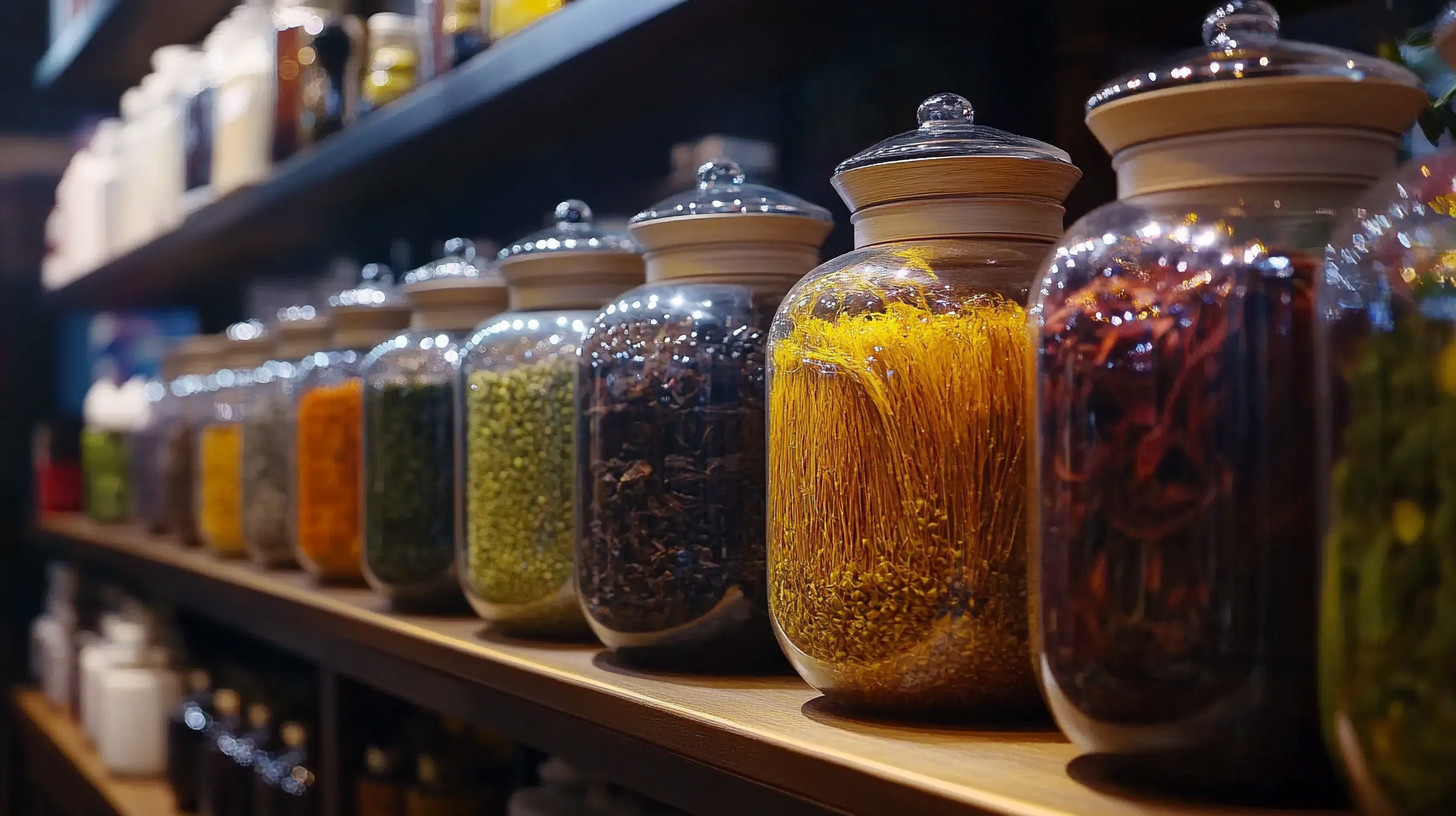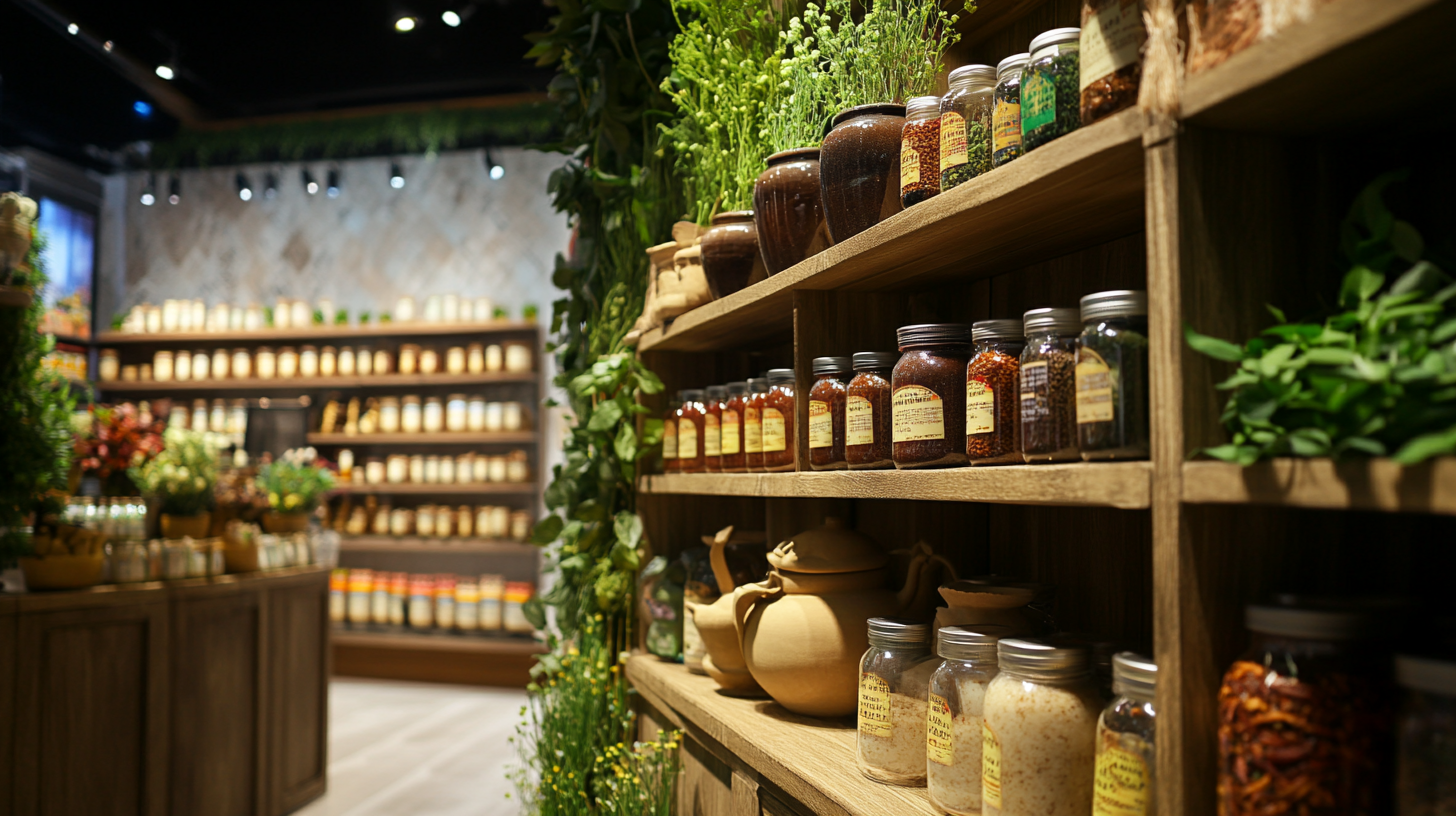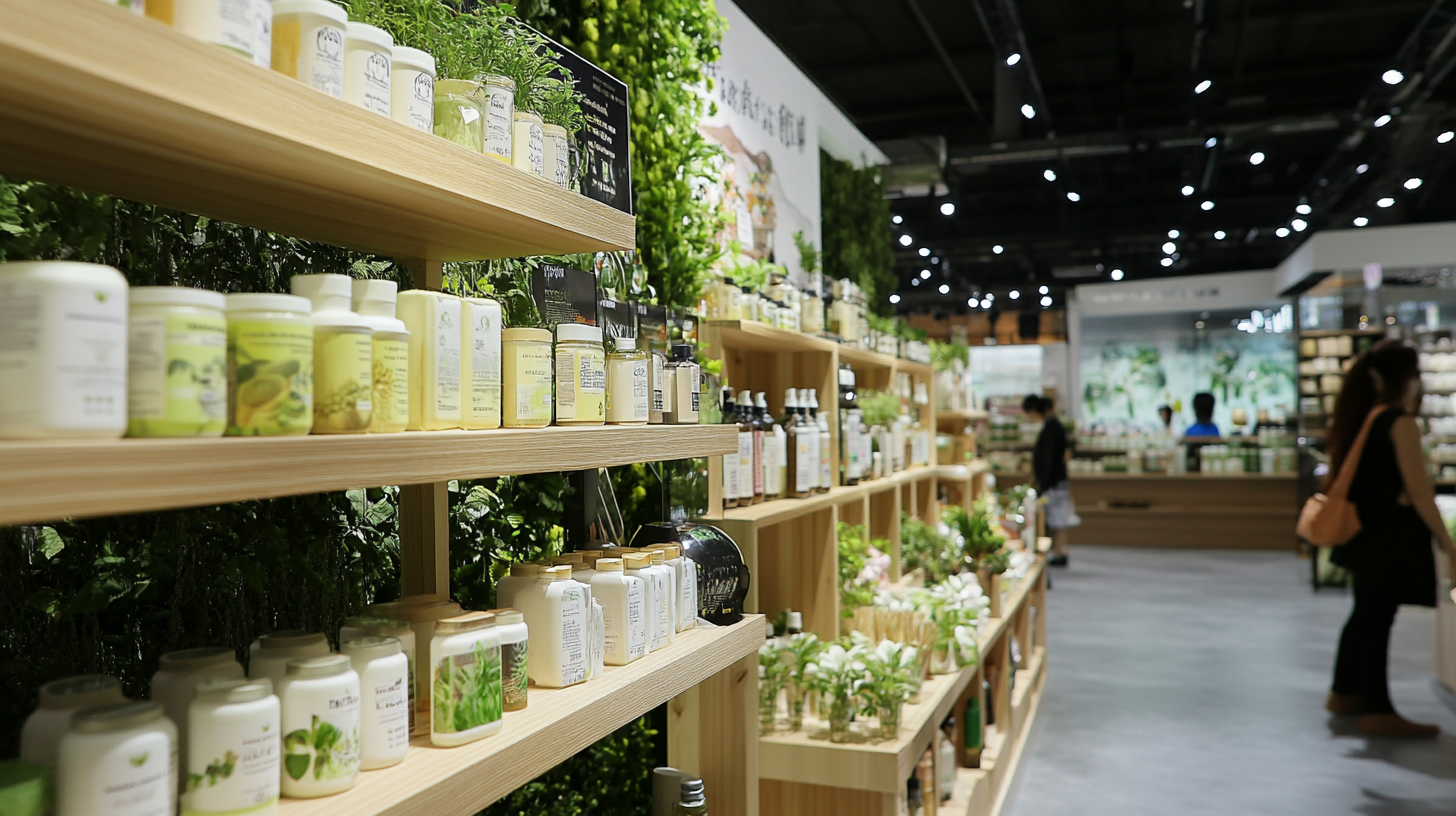50% Response rate
Exploring the Best Herbal Products from Leading Manufacturers at the 137th Canton Fair
As the global demand for natural remedies continues to surge, the herbal products industry is projected to reach a staggering market value of USD 1.5 trillion by 2027, according to recent industry reports. The 137th Canton Fair, held in Guangzhou, has become a pivotal event for manufacturers and suppliers, showcasing innovative herbal solutions that cater to a diverse range of health and wellness needs. With an increasing number of consumers leaning towards herbal alternatives, it is noteworthy that China remains a leading hub for herbal products, contributing significantly to the global market. At this year's fair, the top ten manufacturers highlighted their latest offerings, ranging from traditional herbal medicines to modern herbal formulations, reflecting both time-honored practices and cutting-edge research. This blog will delve into the most remarkable herbal products presented at the Canton Fair, shedding light on the trends, quality, and efficacy that underscore the industry's growth and consumer interest.

Best Herbal Products Showcased at the 137th Canton Fair
At the 137th Canton Fair, some of the leading manufacturers showcased an impressive array of herbal products, highlighting the growing global interest in natural remedies. Attendees were greeted with vibrant displays featuring everything from herbal teas to powders, oils, and extracts, each crafted to harness the benefits of nature's bounty. Many brands emphasized sustainability and organic sourcing, catering to the increasing consumer demand for eco-friendly options.
Among the standout products, traditional herbal formulations stood out alongside innovative blends that marry ancient wisdom with modern science. Visitors had the chance to engage with manufacturers, learning about the sourcing processes and the meticulous craftsmanship involved in creating high-quality herbal goods. The fair not only highlighted popular items but also introduced unique, lesser-known herbs that promise health benefits, reflecting the diverse use of herbal medicine across different cultures. This concentration of expertise and creativity at the Canton Fair truly underscored the vibrant future of herbal products in the global marketplace.
Best Herbal Products Showcased at the 137th Canton Fair
Top 10 Leading Manufacturers of Herbal Products in China
The 137th Canton Fair serves as a pivotal platform for showcasing the most innovative and effective herbal products from esteemed manufacturers across China. Among the top players in the industry, companies like Tongrentang, Heilongjiang Shuanghe Pharmaceutical, and Guangdong Yipin produce a diverse range of herbal remedies that cater to domestic and international markets. According to a recent market research report by ResearchAndMarkets, the global herbal market is projected to reach $2.5 trillion by 2025, with an increasing consumer shift towards natural products. This trend underscores the significance of sourcing quality herbal offerings from reputable manufacturers during events like the Canton Fair.
When exploring herbal products, it's essential to consider the quality and sourcing of ingredients. Tips for selecting top-notch herbal remedies include checking for certifications such as Good Manufacturing Practices (GMP) and ensuring that the products are clinically tested for efficacy. Manufacturers like Beijing Tongrentang, known for its centuries-old practices, stand out by maintaining high standards in production. Furthermore, as the herbal product market expands, diversification in offerings, such as herbal supplements and organic teas, becomes crucial for manufacturers aiming to meet evolving consumer demands.
Additionally, consumer awareness around sustainability and organic sourcing continues to grow. When attending the Canton Fair, it's advised to inquire about manufacturers' sourcing practices and whether they comply with ecological standards. This not only assures product integrity but also aligns with a growing preference for environmentally responsible choices among consumers, as highlighted by a survey from the Herbalife Nutrition.
Innovative Trends in Herbal Wellness from the Canton Fair
The 137th Canton Fair has emerged as a pivotal platform for showcasing innovative trends in herbal wellness, attracting attention from manufacturers and health enthusiasts alike. As the global demand for natural products surges, the fair highlights a remarkable array of herbal offerings, emphasizing the shift towards holistic health solutions. Attendees can explore a diverse range of herbal supplements, teas, and essential oils, all crafted with care and intention by leading producers. This year, the focus on sustainability and organic sourcing has taken center stage, reflecting the industry's commitment to environmental conservation and consumer wellness.
Among the standout trends is the integration of cutting-edge technology in herbal product development. Manufacturers are increasingly utilizing advanced extraction methods and scientific research to enhance the efficacy of their products. This scientific backing not only elevates the credibility of herbal remedies but also appeals to a broader audience seeking reliable and effective health alternatives. Additionally, the Canton Fair serves as a melting pot for cultural exchange, fostering collaborations between Eastern and Western herbal practices, thus enriching the global landscape of herbal wellness.

Consumer Insights: What Buyers Look for in Herbal Products
At the 137th Canton Fair, the spotlight on herbal products highlights emerging trends in consumer preferences. According to a recent market report by Grand View Research, the global herbal supplements market is expected to reach USD 8.2 billion by 2025, driven by a growing consumer shift toward natural and organic products. Buyers are particularly discerning about the quality and sourcing of herbal ingredients, seeking transparency and sustainability from manufacturers. This emphasis on ethical sourcing aligns with the increasing desire for products that not only promote health but also support environmental stewardship.
When selecting herbal products, consumers often prioritize specific attributes. A survey conducted by Statista found that 58% of consumers prefer products with clinically proven benefits, while 52% look for certifications like organic or non-GMO. This trend indicates a shift towards informed purchasing decisions where buyers are keen to understand the efficacy and safety of the products they choose.
**Tips:** To meet these consumer demands, manufacturers should consider emphasizing transparency in their labeling and ingredient sourcing. Engaging in third-party testing can also establish credibility and build trust. Additionally, offering educational materials about the benefits and uses of herbal products can help buyers make informed choices, ultimately differentiating brands in a competitive market.
Exploring the Best Herbal Products from Leading Manufacturers at the 137th Canton Fair - Consumer Insights: What Buyers Look for in Herbal Products
| Product Name | Manufacturer | Key Ingredients | Consumer Rating (out of 5) | Price (USD) | Country of Origin |
|---|---|---|---|---|---|
| Herbal Tea Blend | GreenLeaf Co. | Chamomile, Mint, Ginger | 4.8 | 15.99 | USA |
| Aloe Vera Gel | Natural Essence | Aloe Vera, Vitamin E | 4.5 | 10.50 | Mexico |
| Turmeric Curcumin Capsules | Herbal Roots | Turmeric, Black Pepper | 4.7 | 24.99 | India |
| Elderberry Syrup | Wellness Botanicals | Elderberry, Honey, Ginger | 4.9 | 19.99 | USA |
Sustainable Practices Among Herbal Product Manufacturers at the Fair
At the 137th Canton Fair, the focus on sustainability among herbal product manufacturers has never been more pronounced. Recent industry reports indicate that the global herbal product market is projected to reach $111.09 billion by 2025, driven by growing consumer demand for natural remedies and sustainable sourcing. This surge underscores the importance of ethical practices in production, with many manufacturers committing to environmentally friendly operations.
Manufacturers at the fair are increasingly adopting practices such as sustainable harvesting and organic farming. According to the World Health Organization, over 80% of the population in some Asian countries relies on herbal medicine as a primary health care option, emphasizing the need for eco-conscious methods to ensure these resources remain viable. For instance, many exhibitors at the fair have secured certifications for organic products, which not only enhances their marketability but also protects ecosystems and biodiversity. By prioritizing these sustainable practices, herbal product manufacturers are setting a benchmark for the industry, combining economic growth with responsibility toward the planet.
